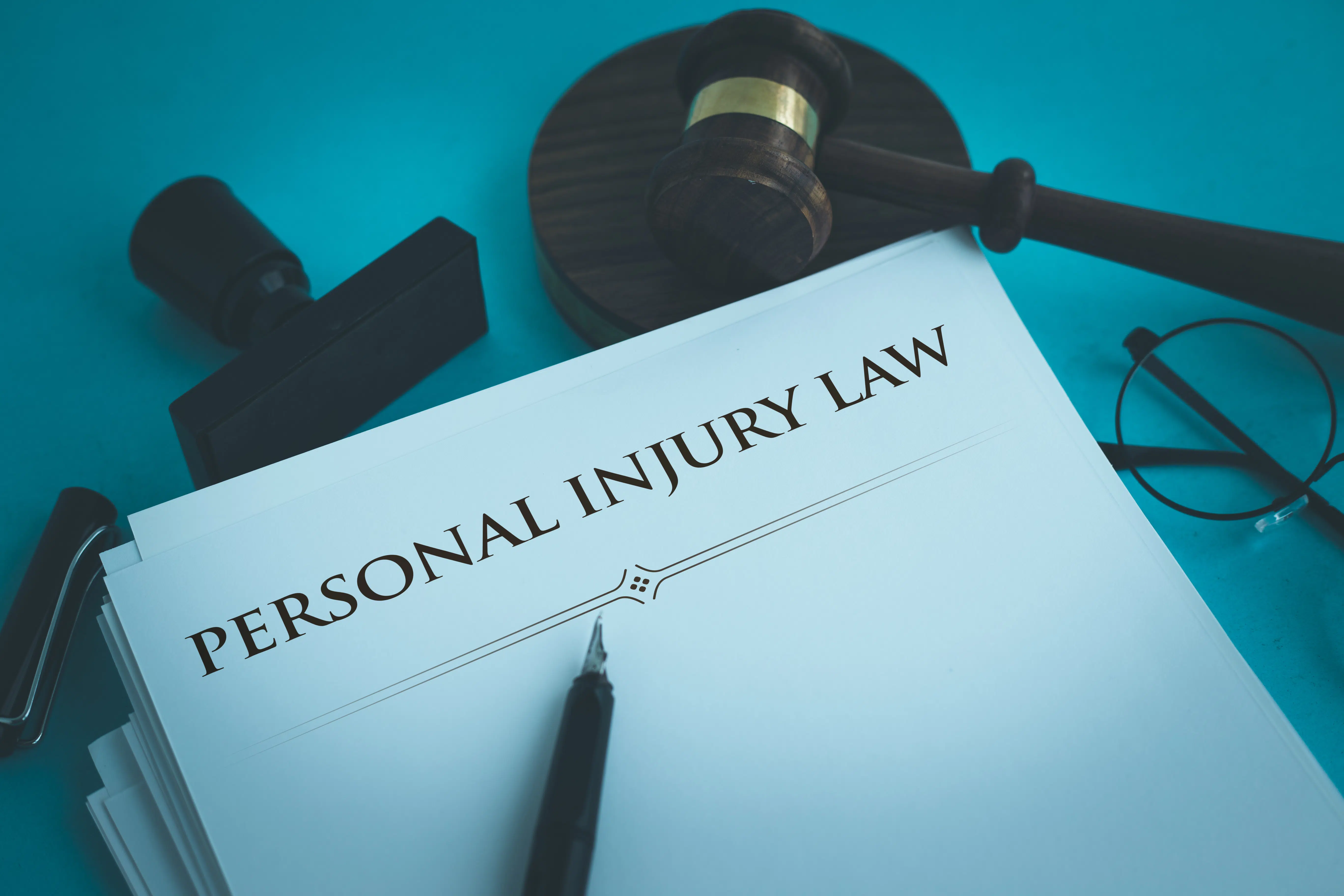Abstract of Title: A chronological summary of all official records and recorded documents affecting the title to a portion of real property.
Ad Litem: A Latin term meaning for the purposes of the lawsuit. A guardian “ad litem” may be appointed by a court to stand in on another’s behalf—someone who is incapable of representing him or herself, such as child or legally incompetent adult.
Adjudicate: To resolve a legal case.
Assumption of Risk: When a person voluntarily proceeds with a risk despite obvious and known danger. In this situation, the individual assumed the risk and thus will not be permitted to seek monetary damages from those they believe to be responsible.
Civil Rights: A group of rights possessed by all citizens under the protection of the U.S. Constitution. Civil law covers all individuals whose rights have been violated to file a lawsuit against another person, private companies, as well as government agencies in order to recover damages and modify practices that infringe on civil rights.
Claim (personal injury): A civil action relating to the physical or mental harm suffered by the plaintiff, or on behalf of the injured victim, due to negligence on the defendant’s part.
Class-action Lawsuit: A suit filed by a plaintiff or plaintiffs on behalf of themselves and as representatives of others. Class-action lawsuits are most often filed to hold a company accountable for the liability of its products, such as defective pharmaceutical drugs or toxic materials.
Comparative Negligence: Comparing a plaintiff’s contribution to the accident to the defendant’s negligence. Under Tennessee’s modified comparative fault system, a plaintiff may only recover compensation if his/her negligence is less than the defendant. In such cases, a plaintiff’s total damages are reduced by the proportion they are determined to be at fault.
Compensation: Something that makes up for a loss. In workers’ comp cases, it refers to payment to an injured worker or their dependants.
Damages: Payment, usually monetary, recovered in a civil court case for an injury or loss caused by another person’s negligence. Damages may be either compensatory or punitive.
Compensatory awards cover actual economic losses and are intended to make the plaintiff “whole” again, whereas punitive damages are intended to deter further misbehavior in the future by punishing the defendant for exceptionally grave misconduct that resulted in serious injuries or death, such as malice, fraud, oppression, or violence.
Expert Witness: A person who is allowed to testify at a trial because of special knowledge or proficiency in a particular field that is relevant to the case.
Fraud: A blatant false or deceptive statement of fact intended to persuade another person to give up something valuable or a legal right he/she is entitled to.
Gross Negligence: Intentional failure to perform a standard of duty by recklessly disregarding another person’s health or property; also known as willful negligence.
Hazardous Exposure: Physical contact with poisonous substances or proximity to toxic airborne agents that are potentially harmful to health. Liability for hazardous exposure may rest on several parties, including the manufacturer of the product, the company responsible for installation, as well as the owner of the building that contains toxic agents, such as a landlord or employer. Talk to a toxic injury attorney if you have been injured or gotten sick because of hazardous exposure.
Lawsuit, or Suit: A court action brought by one person, the plaintiff, against another, the defendant, with the goal of seeking compensation for some injury or punishment of a wrong.
Liability: An obligation one is bound to by law to perform; typically involved the payment of monetary damages.
Litigation: the process of taking legal action and/or filing a lawsuit.
Loss of consortium: Damages awarded to the family member (usually a spouse) of a deceased person for loss of companionship.
Medical Malpractice: Negligence by a professional health care provider, such as a doctor or surgeon, who departs from the applicable standard of care and by act or omission causes injury to a patient.
Medical Malpractice Caps: Limits, or “caps,” on the amount of compensation a victim of medical malpractice can seek out. These caps are intended to keep insurance premiums low and vary by state.
Mitigating Circumstances: Conditions that do not constitute a justification or total pardon for an offense, but which may be used as a reason for reducing the degree of fault.
Negligence: Broadly speaking, it is carelessness. More specifically, in civil law, negligence is conduct which falls below the standard of care established by law for the protection of others against unreasonable risks of harm.
Occupational Disease: An illness caused by long-term employment in a particular line of work, such as construction workers exposed to asbestos, who later develop cancer.
Partial Disability: In a workers’ compensation case, this refers to disabilities that are less than total. Benefits are generally measured by the injured employee’s earning capacity in these situations.
Personal Injury: The area of law which covers all physical, financial, and emotional injuries caused by another person or party’s negligence in using reasonable care. Personal injury cases are considered civil torts, as opposed to criminal lawsuits. Auto accidents and premises liability (slip/fall) are two of the most common types of personal injury cases.
Premises Liability: The legal responsibility of a property owner or occupier of a property to provide compensation for persons who sustain certain injuries while on their premises. For example, a person who is hurt from a slip and fall accident caused by a spill may be able to sue the property owner for negligence.
Preponderance of Evidence: The amount of evidence a plaintiff needs to win a civil case. A preponderance of evidence means that the proof you present must weigh heavier or be more convincing in comparison to the evidence offered by the other side. To win by a preponderance of evidence, the proof presented must simply tip the scales in the plaintiff’s favor, compared to the burden of proof standard set in criminal cases, which must be “beyond a reasonable doubt.”
Products Liability: The area of civil law that holds manufacturers, distributors, suppliers, retailers, and other parties who make a defective product available to the public responsible for injuries that the faulty product causes.
Proximate Cause: The primary or moving reason why an injury or damage occurred and without which the accident would not have happened, if the injury in question can be foreseen as a natural occurrence of the misdeed.
Settlement: An agreement between both parties in a lawsuit.
Specific Loss: In a workers’ comp case, this is the compensation for amputation or permanent paralysis of members of a worker’s body, loss of hearing in one or both ears, loss of vision in one or both eyes, total or partial disability, and disfigurement.
Standard of Care: For cases of negligence, the degree of care which a reasonable person would have applied under the same or similar circumstances. In medical malpractice lawsuits, doctors or health care professionals who fail to meet the standard established by law to protect patients from negligence, the person may be liable for damages or injuries resulting from their conduct.
Statute of Limitations: The amount of time prescribed by law for a plaintiff to file a lawsuit. Statutes can vary by case type and location of injury.
Strict Liability: A legal doctrine that holds a defendant liable for harm cause by their actions regardless of their intentions or level of care. Typically, strict liability is used in defective products or products liability cases.
Third Party Litigation: When a case is brought against a defendant who wants to add another party to the suit. In workers’ compensation law, third-party lawsuits are when an injury is caused by the act or negligence of another party other than the employer (i.e. the manufacturer of a defective tool).
Tort: A private wrong or injury committed against a person or property, resulting in legal liability. Personal injuries arising from negligence are a common example of one type of tort.
Total Disability: In a workers’ compensation case, damages awarded to an employee when they are totally impaired due to a work-related injury. Benefits at the total disability rate are typically two-thirds of wages up to a maximum weekly compensation rate, which in Tennessee is $886.60 per week for accidents occurring July 1, 2012 – June 30, 2013.
Traumatic Brain Injury (TBI): An impact to the head that results in a diminished or altered state of consciousness and may impair a person’s cognitive abilities, physical capacity, and/or a disturbance of emotional or behavioral functioning. Often occurs during severe auto accidents or sport-related injuries.
Verdict: A judge or jury’s decision on a case.
Vicarious Liability: The liability of one person for the torts of another.
Workers’ Compensation (Workers’ Comp): Mandatory insurance that almost all employers are required to hold in order to cover their employees for economic losses due to a job-related injury or illness.
Wrongful Death Action: A lawsuit filed against an individual or company for the death of a person due to negligent or wrongful behavior. Wrongful death cases are generally filed by a surviving family member (typically spouse), who can recover damages for mental and physical suffering, lost wages, funeral and medical expenses for the deceased, loss of income and earning capacity, loss of consortium, and more.
Attorney Keith Anthony doesn’t get paid until you do; until he wins your case, he doesn’t charge his fees. He has every incentive to be honest with you and to work hard to win your suit. When you ask, “What are my chances of winning my personal injury case?”, you can rely on the answer. Contact Keith Anthony or call (860) 333-6455 for your free consultation call.




